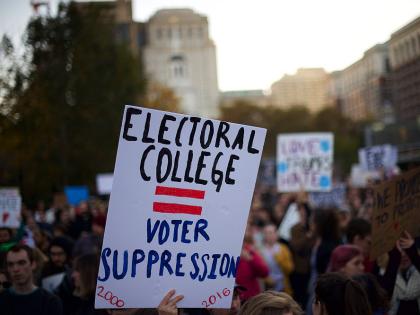The motives that drew me to war were many. They included a longing for the exotic adventure denied to kids who grow up in an isolated farm town, but primarily had their origins in the books I read as an adolescent about the Spanish Civil War and the Holocaust. I longed, like my boyhood heroes, to battle fascism, understand its grim pathology, and grapple with the struggle to live the moral life, and make moral choices, in the face of such barbarity. Latin America, in the early 1980s, was dotted with despotic military dictatorships. By the time I was in divinity school, the struggle against these regimes seemed as close as my generation would come to the moral confrontations that intrigued me. In the fall of 1980 Robert Cox, the former editor of the Buenos Aires Herald, arrived as a Nieman Fellow. His courage and deep religious belief helped me make the leap from the church, where I grew up in a manse, to journalism. Cox, at the height of the Dirty War in Argentina, published on the front page of the paper the names of all those who were “disappeared” the day before by the death squads. His public de?ance landed him in prison—he was taken to his cell past a huge Nazi ?ag—and saw him expelled from the country. His British citizenship, no doubt, saved his life. He once told me that, should he be imprisoned again, he would take with him the four volumes that make up the Collected Essays, Journalism, and Letters of George Orwell. And during my first year in Latin America—when I studied Spanish at the language school run by the Catholic Maryknoll missionary society in Bolivia and later went on to cover the Falklands War from Buenos Aires for National Public Radio—I carried these books with me like the Bible.
What Drew Me to War
The motives that drew me to war were many. They included a longing for the exotic adventure denied to kids who ...
You might also like
Talking About Tipping Points
Developing response capability for a climate emergency
Academia’s Absence from Homelessness
“The lack of dedicated research funding in this area is a major, major problem.”
The Enterprise Research Campus, Part Two
Tishman Speyer signals readiness to pursue approval for second phase of commercial development.
Most popular
More to explore
What is the Best Breakfast and Lunch in Harvard Square?
The cafés and restaurants of Harvard Square sure to impress for breakfast and lunch.
How Homelessness is a Public Health Crisis
Homelessness has surged in the United States, with devastating effects on the public health system.
Portfolio Diet May Reduce Long-Term Risk of Heart Disease and Stroke, Harvard Researchers Find
A little-known diet improves cardiovascular health through several distinct mechanisms.








